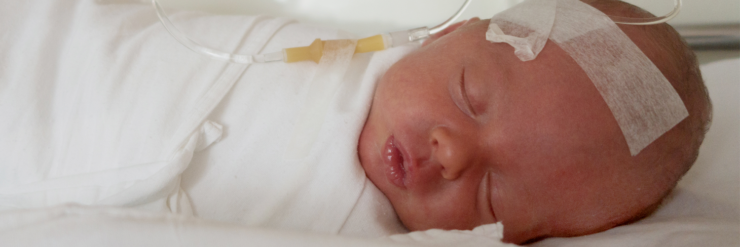What’s the Danger in Being Born Early?
A full-term pregnancy is 40 weeks long, and every week makes a difference in the growth of a baby’s brain, lungs, liver, and other organs.
The brain, for example, grows four- to five-fold in size between 35 and 40 weeks.
While it’s well known that babies born before 34 weeks of pregnancy are at a higher risk for death or disabilities, we have learned more recently that “late preterm babies” — those born
between 34 and 37 weeks of pregnancy — also need special attention. They may have feeding problems, hypothermia, jaundice, developmental issues, and a higher risk of sudden infant death syndrome (SIDS).
How Can Women Prevent Premature Births?
Early and ongoing prenatal care is the most important thing a pregnant woman can do to ensure her health and the health of her baby. Ultrasounds can tell us the due date and provide benchmarks for check development.
At 12 weeks, we can draw blood to check the risk for conditions like Down’s syndrome and other abnormalities. If a heart problem is suspected, echocardiography performed between 18 and 24 weeks can detect most major heart defects, and helps the delivery team to prepare. And as the pregnancy progresses, we look for conditions that might trigger early labor.
Many issues can be addressed through interventions such as monitored bed rest, cerclage (stitching the cervix if it is too weak to support the baby), and medications for women who have had a previous preterm delivery.
What If Labor Still Begins Prematurely?
Stony Brook is Suffolk County’s only state-designated, regional perinatal center — which means we have the highest level of facilities, technology, and expertise to care for high-risk women and critically ill newborns.
Every year, more than 200 high-risk pregnant women are transferred to us from other hospitals. And we treat more than 1,000 sick newborns each year, including around 100 babies who are transferred to us.
How Does Stony Brook Children’s Help Premature Babies and Moms Prepare to Go Home?
Our high-risk obstetric inpatient unit is staffed with perinatologists and nurses trained to help high-risk mothers and their families to get the best start possible.
We also have many programs that focus on breastfeeding, safe sleeping (to avoid SIDS), and preparing moms and families to care for their baby at home.













